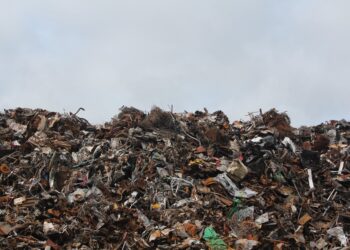“As a consumer avoiding plastic has become almost mission impossible.”
The sound of waves crashing gently onto the shore at a beach, creates instantly that feeling of relaxation – a moment to truly recharge your batteries. But with open eyes an incredible amount of waste becomes visible: PET bottles, flip flops, empty food packets, oil canisters, toothbrushes, clothes, bags, glass bottles, plastic bags, cans, straws, syringes without (or with) needles… the list is endless. It is a picture that is familiar from Thailand to the Philippines, from Vietnam to Indonesia and around the entire world writes Stefanie Sacherow. The sale of products wrapped in too much packaging simply does not stop. Industrial nations claim to recycle, but careful, it might mean selling the separated waste out of the country or to thermo-recycle it which means burning. In the meantime, countries like Indonesia do not even have a pick-up or waste management system.
While producers of water, lemonade or other drinks in PET bottles continue to put ever increasing plastic waste onto the market, the environment is full of it from waste mountains on land to islands of plastic debris in the ocean. Animals eat and die with guts full of plastic. Many individuals, groups and even some governments have started to work on solutions but often their work lacks support, money or knowledge to become more successful.
In North Sulawesi, Indonesia, the No-Trash Triangle Initiative was formed when marine-biologists saw the necessity for action. Besides researches on the subject of plastic, the initiative has also started to collect, separate and newly to sell the waste back into the industry that precious materials be recycled.
Yet, the win covers barely the costs. This is strange considering the profit that is achieved before the bottle is emptied. Objectively seen, it remains very questionable why 200ml bottles or cups with straws are produced, sold or distributed for example on Asian flights, when bigger bottles and cups made from reusable material could be used. Isn’t it an alarming sign when the value of the packing reaches a certain proportion of the product? Is it okay to see the cost of the production only while its end-of-use or recycling can cause multiple troubles and costs?
As a consumer avoiding plastic has become almost mission impossible. The visit of the supermarket shows clearly that water and most other drinks are still mainly sold in PET bottles. Drinking water refill stations as in Australia for instance are not yet present often enough in public and even if most people are not (yet) carrying bottles with them to be able to refill them.
When has our society forgotten to choose and use long-lasting packaging that does not hurt the environment so badly?
Why have so many sizes become one-time-use sizes?
It is every piece that matters as even though, even plastic fragments into smaller pieces, it does not mean that it is gone. Regular plastic remains in the environment for hundreds of year. One plastic bag becomes simply countless pieces that are even more difficult to detect, collect or recycle. The problem is not gone – only less visible. Documentaries like “a plastic ocean” show the danger. If you don’t trust movies, trust your own eyes or mine.
My name is Stefanie and I have been helping the NO-TRASH TRIANGLE INITIATIVE on Bangka Island in Indonesia as a volunteer. I saw how the countryside and landscape looks like with and without any waste management system. For one month, I have been picking up and sorting trash. Often it was dirty, smelly and more than disgusting. It is definitely a job that changed me. I don’t want to be responsible for this waste. It hurts me to see children or wild animals playing with trash, putting this dirt in the mouth or even eating it. I want to minimize my footprint.
I can’t change you, I can only try to be the change I want to see. You don’t need to go to North Sulawesi Sulawesi yourself to help, but you can or we can start directly to be the change.













